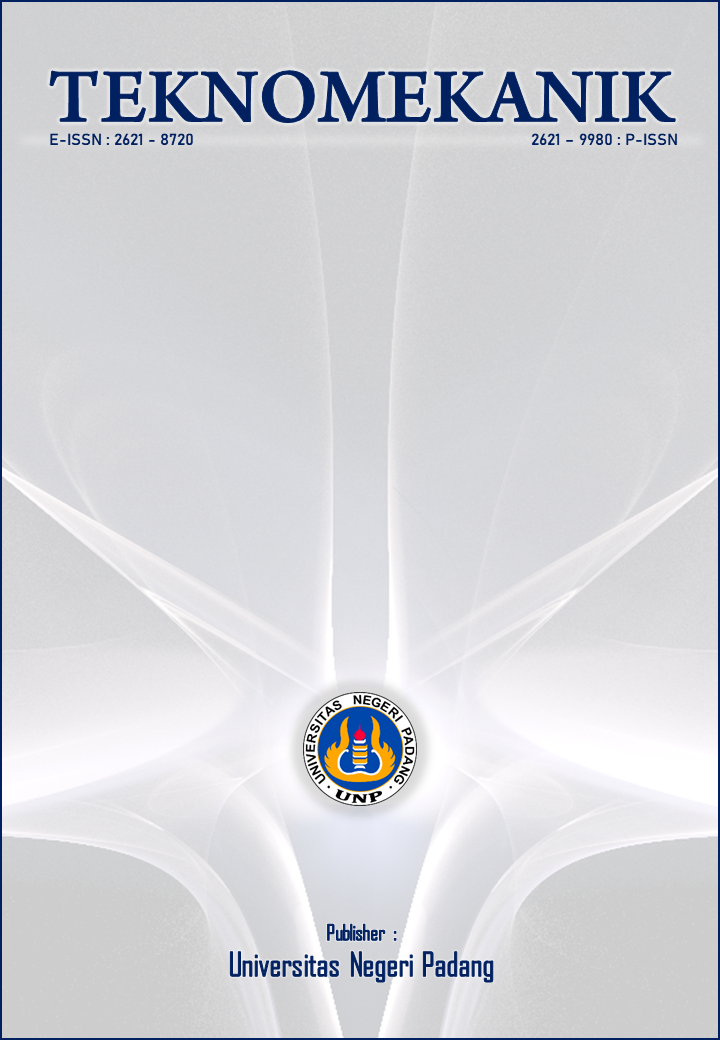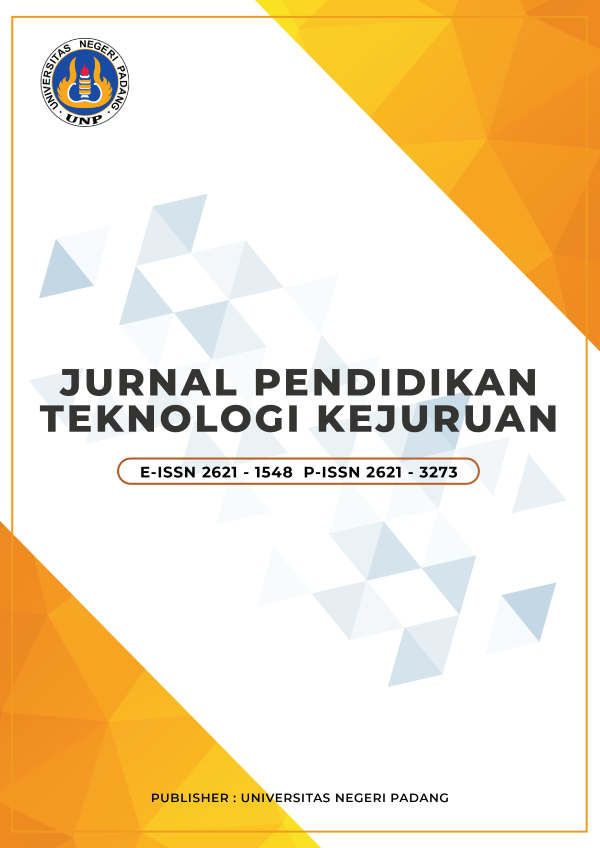The Contribution of Workshop Management to Students' Learning Outcomes in Vocational High School
DOI:
https://doi.org/10.24036/meej.v1i1.5Keywords:
Workshop Management, Learning Outcomes, Vocational High School, Mechanical EngineeringAbstract
SMK Negeri 1 Sumatera Barat has workshop facilities that support education, but learning outcomes in using machines for machine work practice are still below the minimum passing grade. The problem lies in the poor management of the machining workshop, such as many appliances that do not function properly, causing students to be hindered in carrying out practical work in the workshop, and equipment shortages with differences in the number of students. This research aims to reveal how workshop management can improve students' learning outcomes. The research used a quantitative descriptive research design. The study population was all 61 students registered in the XI grade of the Mechanical Engineering Program at SMK N 1 Sumatera Barat in the academic year 2022/2023, with a sample size of 38 students. The variables in this study were workshop management (X) and learning outcomes (Y). Data analysis techniques included descriptive analysis, hypothesis testing, and prerequisite testing. The prerequisite analysis tests were normality and linearity, while hypothesis testing used regression analysis. The results showed that the calculated correlation coefficient (r) was 0.781, with a positive or direct attribute with a significance value of 0.000. This means that the correlation between the two variables is significant at both 0.05 levels. Therefore, the null hypothesis (H0) was rejected, and the alternative hypothesis (H1) was accepted. Although the correlation and contribution levels between workshop management and students' learning outcomes were extreme, they were still below the minimum passing grade.
Downloads
References
Amri, S., Rifa, A., & Hanif, M. B. (2020). Peran Akses E-Skripsi untuk Mahasiswa Universitas Semarang Selama Perkuliahan Online (Daring). Information Science and Library, 1(2), 12–17.
Aziz, A., & Munif Shaleh. (2019). Variasi Metode Pembelajaran Dan Peningkatan Motivasi Belajar Siswa. Edupedia, 4(1), 87–94. https://doi.org/10.35316/edupedia.v4i1.529
Fahmi, R., Nadya, A., Rizki Adhari, N., & Baynal Hubi, Z. (2021). Penguatan Pendidikan Kewarganegaraan Sebagai Upaya Diradikalisasi Generasi Muda. Jurnal Pancasila Dan Kewarganegaraan, 6(2), 33–42. https://doi.org/10.24269/jpk.v6.n2.2021.pp33-42
Downloads
Published
How to Cite
Issue
Section
License
Copyright (c) 2023 Mechanical Engineering Education Journal

This work is licensed under a Creative Commons Attribution-ShareAlike 4.0 International License.
Most read articles by the same author(s)
- Rahim Fitra Yodi, Irzal Irzal, Adri Junil, Purwantono Purwantono, Relationship between knowledge and students' welding practical skills , Mechanical Engineering Education Journal: Vol. 1 No. 2 (2023): Regular Issue
- Pres Megari, Mulianti Mulianti, Yufrizal A, Implementation of Project-Based Learning Model in Lathe Machining Technique Subjects to Improve Student Learning Outcomes , Mechanical Engineering Education Journal: Vol. 1 No. 2 (2023): Regular Issue
- Angger Prayogi, Febri Prasetya, Yufrizal A, Bulkia Rahim, Increased interest and learning outcomes of vocational high school students through the use of CNC lathe simulators , Mechanical Engineering Education Journal: Vol. 1 No. 1 (2023): Regular Issue
- Arifin Adli, Ambiyar Ambiyar, Refdinal Refdinal, Purwantono Purwantono, The Influence of Project-based Learning Model on mechanical Engineering Drawing Learning Outcomes , Mechanical Engineering Education Journal: Vol. 1 No. 1 (2023): Regular Issue




